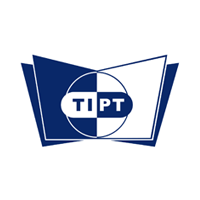
When enrolled in the Pharmaceutical Manufacturing program at Toronto Institute of Pharmaceutical Technology, you have the option of earning a number of different certificates. These certificates are available in granulation, compression, capsulation, coating, and semi-solid technology.
With any of these certificates, you can show potential employers that you have the specialized skills and expertise needed for a career in pharmaceutical manufacturing. Below, we will take a closer look at three of the certificates you can earn during your program and why they matter in the pharmaceutical manufacturing process.
1. To Earn Any Certificate, Students in Pharmaceutical Manufacturing Training Must First Study Granulation
The Granulation Technology certificate covers a fundamental concept in pharmaceutical manufacturing. In fact, before you can earn any of the other certification offered through our program, you must first complete the Foundation and Granulation modules. Granulation is important because it helps keep the constituent parts of a medication evenly distributed. That’s especially important for medicines that consumers may cut into smaller pieces, like tablets.
Powders are often used to manufacture tablets and other medicines. Because powders have different sized particles, smaller and denser particles tend to settle at the base, while larger and less dense particles rise to the top. To prevent this from happening, granulation turns the powder into granules and ensures that each granule contains an even distribution of particles. Since each granule is roughly the same size and density, this granulation helps maintain consistency of ingredients in each individual tablet.
2. Compression Technology Helps Ensure the Effectiveness of Medications
Another one of the important certifications you can earn during your pharmaceutical manufacturing training is in Compression Technology. Compression, as its name suggests, refers to the process of compressing powders into tablets. While that may sound straightforward, there are many considerations that must be taken into account in order to get the compression process right.

For example, tablets are designed to release their active ingredients at a certain rate. Some drugs released their active ingredients immediately, while others may release them over a longer period. Release rates are often determined by the rate at which a tablet dissolves or disintegrates. Likewise, it’s important that each tablet be consistent in terms of weight and ingredients, which is partly determined by how it is compressed. If a tablet is compressed too tightly, for example, it may compromise the release rate, weight, and amount of ingredients in the tablet.
3. Coating Technology Can Help Increase Proper Medication Use Among Consumers
When you study pharmaceutical manufacturing technology, you can also complete the Coating Technology certification. Coating is used in many different dosage forms and it has numerous advantages. For one, it can increase the likelihood that the patient will actually use the medicine properly. That’s because coating a tablet masks the often bitter-tasting substances that the tablet contains. Coating can even be flavoured to further improve the taste. As a result, the consumer is more likely to use the medication as instructed if the experience of doing so is relatively pleasant.

Furthermore, coating helps protect the medication. An uncoated tablet is more likely to break, chip, crumble, or dust than one that has been coated. If the tablet remains strong and does not break apart, then each tablet will contain a consistent amount of active ingredients. As a result, the safety and effectiveness of the medication is improved.
Are you interested in a career in the pharmaceutical industry?
Contact TIPT to learn more about our pharmaceutical manufacturing diploma.
